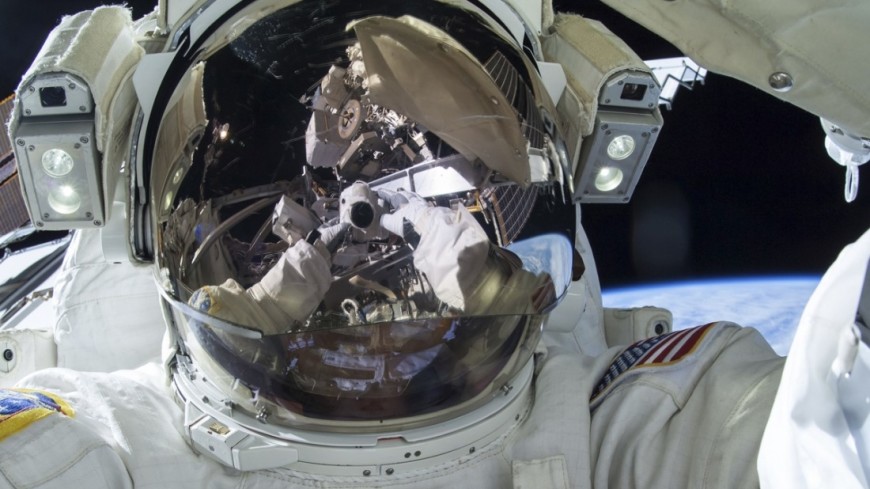Doctors have studied molecular changes in the body of 18 Russian astronauts

The complex combination of factors that influence the body during a flight into space was completely absent during the evolution of homo sapiens on Earth. Accordingly, the human body is not initially adapted to these factors. And not the fact that adapts to them. The effect of space flight on the body has been actively studied in the last half century. Found many physiological changes in the body at the end of space flight.
Specialists of the Institute of Medical and Biological Problems of the Russian Academy of Sciences together with colleagues from the Skolkovo Institute of Science and Technology and the University of Victoria (Vancouver, Canada) studied how the expression of various proteins after 18 years of space flight changed in 18 Russian cosmonauts. This is one of the few studies of exactly what molecular mechanisms control the physiological changes in humans in space.
According to the results of numerous studies that have been conducted in recent decades, scientists list the basic changes that occur in the body as a result of adaptation to space factors:
')
- Energy imbalance - when the body's energy expenditure is not reimbursed by incoming food, which represents a serious threat to many physical processes.
- The negative balance of water and calcium, although the balance of sodium is probably positive.
- Demineralization and change in bone structure.
- Ineffective thermoregulation.
- Shifts of biorhythms in heat generation, hormonal secretion and cardiac function.
- Restructuring of vasomotor control (changes in the lumen of blood vessels, especially arteries) and dysfunction of the vascular endothelium.
- Muscular hypotrophy, loss of tone and deterioration in strength-rate indicators.
- Functional differentiation of sensory systems and subsequent impairment of motor function.
- Changes in lung volume, biomechanics of respiration and regulation of chemo-receptors.
- Immune system dysfunction.
- Anemia from space flight ( cellular hypoxia ).
Until now, the molecular mechanisms behind these changes remained unknown. Since proteins play a key role in the adaptation of the body, the scientists decided to study the expression of proteins in order to get the most complete picture of how the human body adapts to space. For this, mass spectrometry was used to carry out a quantitative proteomic analysis of 54 plasma samples taken from 18 cosmonauts before and after the flight. The astronauts stay in orbit is 158 ± 15 days, with the exception of one cosmonaut who flew 429 days.
A total of 125 extracellular proteins, known as putative biomarkers of non-communicable diseases, were analyzed. The technology allows to calculate the amount of substance in the sample with an accuracy of one molecule. This is the world's first relatively large-scale proteomic analysis of astronaut blood levels of proteins as a result of changes after space flight.
The measurement results are shown in the table .
Scientists have identified proteins, the concentration of which remained unchanged, as well as proteins, the concentration of which has changed, but quickly returned to normal levels (such as it was before the flight). The most important thing is that proteins were detected, the concentration of which was very slowly restored after the astronaut returned to Earth. Obviously, they are associated with the most dangerous and long-term consequences of space flight.
Of all the studied proteins, the level of 19 has changed. They are mainly associated with oxidative stress, cytoskeleton, glucose and fat metabolism, cell damage and response for their recovery, apoptosis (regulated programmed cell death), calcium / collagen metabolism, lipoprotein transfer, cellular functions, protein degradation, signal transduction and cellular metabolism (energy metabolism in the cell).
“The study showed that in conditions of weightlessness the immune system behaves as if it were a disease, because the human body does not understand what to do and includes all sorts of protection systems,” said one of the authors of the study, Professor Skoltech and MIPT Yevgeny Nikolaev. - In the future, we plan to use a targeted approach to identify more specific proteins responsible for human response to space conditions. For this, astronauts will have to undergo blood tests in orbit. ”
The study of the effect of weightlessness on the body is very interesting for science. It is curious how the body reacts to dramatically changed environmental conditions, whether it can adapt. Judging by the results of studies that are available to date, the body is not able to adapt to new conditions in such a short period of time, therefore, includes all protective mechanisms. Weightlessness is a really dangerous thing.
The scientific article was published on August 15, 2017 in the journal Nature Scientific Reports (doi: 10.1038 / s41598-017-08432-w).
Source: https://habr.com/ru/post/373761/
All Articles